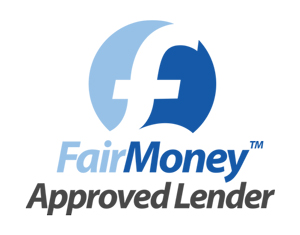Transparency - The Definition of Financial Accountability
Recently in the press, transparency has been a hot topic, but what is it? And why does it matter?
Generally, being ‘transparent’ means being as clear as possible. In business then, this means being honest and upfront, so that customers know exactly what to expect from the offset.
At FairMoney™, transparency is at the core of everything we do.
Think about it - no one likes to be told one thing only to find out later that the opposite is true. For example, if you’re told that something costs a certain price, and then get hit with hidden costs that weren’t included, you’re likely to be more than a little annoyed.
It’s not how we understand buying and selling – and can make us feel either stupid or tricked.
Here’s an example: A number of budget airlines have taken to advertising their baseline prices in order to pique our interest. Only when we reach the checkout do they add costs like tax, fuel duty, baggage fees, seat reservations and priority boarding.
We tolerate this model of selling, but we don’t like it. Some other countries, such as the US, are more comfortable with these methods, because there, everyday shopping doesn’t include purchase tax, and this is added on to the marked price of a product at the till.
However, it’s probably fair to say that in the UK, when it comes to cost, we don’t like surprises. When we make purchases we expect a level of predictability and feel sales people are being sneaky and dishonest by not making the final cost and commitment clearer to the customer at the outset.
For more evidence of how we dislike being surprised, let’s take a look at how we reacted to the MPs expenses scandal.
Whilst we could tolerate the idea of MPs claiming their expenses, when we discovered what these ‘expenses’ were, they certainly didn’t match up to our ideas on what’s reasonable. The entire scandal demonstrated how the spirit of an agreement is just as important as the detail, particularly when a relationship is meant to be long term and comprehensive.
Transparency and The Financial Services Industry
When it comes to financial services, the relationships we have with these establishments are hugely important. We expect them to be honest and upfront, so that we’re not confronted with nasty surprises when we least expect it.
When we enter in to an agreement with a financial institution, we are asked to tell the lender an awful lot about ourselves. In return, we should expect them to be clear, open, honest and predictable. If then, they fail to hold up their end of the bargain, it can make for a very unequal and stressful relationship indeed.
FairMoney™
Transparency is at the cornerstone of what we at FairMoney™ feel fairness is all about, and furthermore, we believe that this should be the case for everyone, not just for loan seekers with a perfect credit rating.
Fairness means that everybody should be treated the same, no matter how many credit and money problems you’ve had in the past or perhaps still have today. That’s why at FairMoney™, the loans and prices you are presented with are those we believe to be the very best for your circumstances, selected from our large panel of some of the very best lenders in the country.
Here at FairMoney™ we know that it is borrowers with poor credit scores and damaged credit histories that need transparency the most. That is why we require members of our lending panel to sign up to the FairMoney™ Promise.
It is actually those of us who have the least resources to fall back on – vulnerable customers trying to rebuild their credit profiles on incomes stretched to the limit – who need to clearly understand their options the most. This is what the Competitions and Markets Authority and the Financial Conduct Authority are trying to bring into existence, something that we at FairMoney™ support wholeheartedly.
We think we have the right balance here at FairMoney™, so take a look at our homepage and see for yourself.




